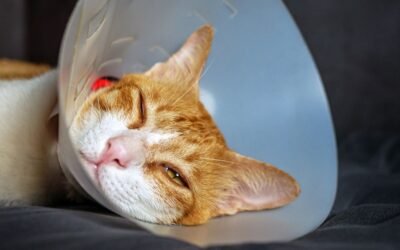Best Pet Insurance for Cats: Compare Plans & Protect Your Feline Friend
Become an informed cat owner when it comes to insuring your furry friend, from understanding the basics to choosing the right plan:

Insurance Calculator
Vet Appointment
Why Cat Insurance Matters in the U.S.
The stakes are high because your cat’s health is priceless. One in three pets requires emergency treatment each year, and 70–100 % of eligible veterinary costs can be reimbursed with the right policy. Rising veterinary costs make coverage increasingly important; the Bureau of Labor Statistics reports that vet services rose 7.9 % in a single year. Pet insurance turns unpredictable expenses into manageable monthly payments, letting you focus on your cat’s wellbeing instead of your wallet.
Pet Insurance for Kittens – Get a Fast, Free Quote
Comparing quotes is the fastest way to see how much coverage will cost for your cat’s age, breed and location. Many insurers now offer instant online quotes that take less than five minutes.
When you request a quote, you’ll often be asked about your cat’s age, whether they’re spayed/neutered, any pre‑existing conditions, and your zip code—because premiums vary by region. For example, Spot allows cat parents to customize deductibles ($100–$1,000), choose reimbursement rates (70 %, 80 % or 90 %), and set annual coverage limits. Lemonade offers some of the lowest sample premiums at $11 per month, and Fetch reimburses up to 90 % of unexpected vet bills and even provides 100 % reimbursement on qualifying pet medications.
Shopping around helps you find the best combination of price and protection. Some insurers, like Prudent Pet, offer accident-only coverage starting at around $10 per month, while accident‑and‑illness plans are typically in the $25–$32 per month range for cats.
You can also look for added perks that go beyond basic coverage. For instance, some plans include wellness add-ons for routine care like vaccinations, dental cleanings, and annual checkups. Others may offer extras like lost pet recovery services, behavioral therapy, or coverage for alternative treatments such as acupuncture. These benefits can enhance your cat’s overall health while saving you money in the long run—so it’s worth comparing not just the price, but the full scope of what each policy provides.
Talk to a Licensed Agent
Insurance options for cats can feel overwhelming. Policies vary in coverage, deductibles, reimbursement rates and even the way claims are filed. Speaking with a licensed agent helps you cut through the confusion. An agent can:
- Answer questions about accident-only vs accident & illness vs wellness plans
- Explain waiting periods and exclusions for pre‑existing conditions (most plans exclude pre‑existing issues)
- Customize deductibles and reimbursement rates to fit your budget and your cat’s needs
- Compare reputable providers like Lemonade, Fetch and Spot, whose sample premiums or coverage options differ widely (e.g., Lemonade’s sample cat premium is $11 per month while Spot lets you choose 70 %, 80 % or 90 % reimbursement)
Working with an expert avoids costly mistakes, like choosing a plan that doesn’t cover breed‑specific risks or skipping wellness add‑ons that could save you money long‑term. Ready to get personalized guidance?
Online Vet Consultations
Telehealth isn’t just for humans; it’s revolutionizing pet care. Many insurers now include virtual vet visits as part of their coverage. Spot’s accident & illness policy lists “virtual vet visits” and consultation fees among covered services, and its optional wellness plans cover routine telehealth appointments. Fetch’s accident & illness coverage includes online vet visits as a reimbursable expense.
Online vet consultations offer:
- Convenience: Access licensed veterinarians by video or chat without leaving home, ideal for anxious cats or busy pet parents.
- Immediate Guidance: Get advice about minor injuries, diet questions or behavioral issues; know when an in‑person visit is necessary.
- Cost Savings: Telehealth consultations often cost less than in‑clinic visits and may be covered or discounted under your policy.
Pumpkin Pet Insurance Review for Cats
Pumpkin Pet Insurance stands out for cat parents who value preventive care and lifelong protection. With no age limits for enrollment, wellness add-ons, and strong accident-and-illness coverage, Pumpkin helps support kittens, seniors, and rescues alike. A simple, proactive plan designed to keep cats healthier and families financially confident through every life stage.
Spot Pet Insurance Review for Cats
Spot Pet Insurance gives cat owners real control: choose your deductible, reimbursement (up to 100%), and add preventive care for exams, vaccines, and dental cleanings. Strong accident-and-illness coverage, 24/7 vet telehealth, and quick claims make it a flexible option for kittens, seniors, and multi-cat homes that need predictable protection.
Pets Best Pet Insurance Review for Cats
Pets Best offers wide-ranging cat insurance with strong illness and accident coverage, optional wellness benefits, fast claims, and a 24/7 veterinary helpline. Ideal for kittens, seniors, and multi-cat homes, the plan supports routine care and major medical needs so you can focus on comfort and peace of mind—not surprise vet bills.
Figo Pet Insurance for Cats – Review: Digital-First Coverage and Unlimited Benefits
Figo Pet Insurance blends strong medical coverage with modern convenience for cat parents. With fast digital claims, 24/7 virtual vet support, and unlimited annual payout options, Figo offers peace of mind during emergencies and long-term care. See why tech-savvy owners trust Figo to protect their cats at every stage of life.
Embrace Cat Insurance Review 2025: Coverage, Benefits & Features
Embrace Pet Insurance stands out for cat owners who want flexible plans and lifelong support. With wellness add-ons, dental illness coverage, hereditary condition protection, and multi-pet discounts, it’s built for real-life feline needs. Learn how Embrace helps cover emergencies, routine care, and long-term health for cats of every age.
Understanding Cat Insurance Coverage: What’s Really Protected?
Cat insurance isn’t one-size-fits-all. From accident-only plans to comprehensive coverage with dental, wellness, and behavioral benefits, understanding what’s included — and what isn’t — helps you protect your cat and your budget. This guide breaks down key coverage terms, real-world examples, and smart tips for choosing the right plan.
Contact an Insurance Agent
Don’t hesitate to send a message for an online veterinary consultation today – it’s convenient, effective, and can help keep your pet healthy and happy!
Consult an Online Vet
Experience the convenience and quality of online veterinary consultation, and give your furry friend the expert care they deserve – all from the comfort of your own home
Understand Cat Insurance (A Clear, Humane Look at Your Options)
Vet bills rarely arrive on a gentle schedule. A cat can look fine at breakfast and need X-rays by dinner, and that whiplash is exactly why many families explore pet insurance for cats. The catch is that there isn’t just one kind of policy. Plans differ in what they cover, how they calculate reimbursements, and the trade-offs you choose between a lower premium today and a lower out-of-pocket tomorrow. What follows is a straight, human explanation of the major plan types and the small-but-important details that decide how claims play out when your cat actually needs help.
Accident-Only Plans
Start with the simplest design: accident-only cat insurance. These policies cover injuries caused by sudden mishaps—broken bones from a fall, swallowed objects, bite wounds, toxic exposures. Because illnesses aren’t covered, premiums typically stay on the lower side. A practical example: Spot’s accident-only plan lists emergency visits, surgeries, tooth extractions, and microchipping among covered items, and it even recognizes certain complementary options like acupuncture when tied to an eligible accident. If your budget is tight but you want a safety net for “oh no” moments, this lane keeps things affordable while protecting against the kind of bills that make you hold your breath at checkout.
Accident-only coverage is not a magic shield. If your cat develops vomiting from pancreatitis or starts peeing outside the box due to a urinary issue, those are illnesses, not accidents. Owners who choose this path usually accept that trade-off knowingly—pay less monthly, carry more risk for medical conditions. It’s not wrong; it’s strategy. And strategy should match real life, not a wish.
Accident & Illness Plans
For broader protection, accident & illness plans are where most cat parents land. These policies account for the messy, common problems cats run into: cancer, urinary tract infections, diabetes, dental disease, heart conditions, skin and ear infections, allergies, arthritis. Coverage typically extends across diagnostics (bloodwork, X-rays, CT scans), prescriptions, hospitalizations, and surgery when they’re medically necessary. Fetch, for instance, is known for comprehensive coverage that can reimburse up to 90% on eligible bills tied to emergencies and illnesses alike, including swallowed objects, bite wounds, and many chronic conditions.
Some plans try to meet you in the gray areas, too. Spot’s accident & illness plan notes that certain pre-existing issues considered “curable” may re-enter coverage once a cat has been symptom-free for a specified period (for example, six months). That’s a narrow door—but it’s there, and for a few families it’s the difference between “excluded forever” and “covered again.” Always read the definition of “curable,” because insurers use that term pretty carefully.
Wellness Plans (Preventive Care Add-Ons)
Routine care—vaccinations, annual exams, dental cleanings, fecal tests, parasite control—isn’t part of standard medical coverage, which is why many companies offer optional wellness add-ons. These aren’t about emergencies. They’re about rhythm and discipline: the yearly visit that catches a dental issue early, the parasite prevention that keeps everyone comfortable, the bloodwork that spots kidney changes before there are symptoms. Spot’s Gold and Platinum wellness plans (starting around $9.95 and $24.95 per month, respectively) are examples that outline specific allowances for routine items.
Whether a wellness rider is “worth it” depends on your habits. If you reliably do vaccines, annual exams, and dental cleanings, the math can be tidy. If your routine care is sporadic, paying out of pocket may be simpler and cheaper. There isn’t a moral high ground here—just two paths to consistent care. Pick the one you’ll actually use. You don’t need to overspend to be a good cat parent. Really.
Coverage Details and Limits (The Fine Print That Drives Claims)
Insurance works on definitions, and definitions live in the fine print. A few dials decide how much you pay and how quickly reimbursements arrive:
- Reimbursement Rate: Most insurers let you pick the percentage they’ll pay on eligible claims after your deductible—commonly 70%, 80%, or 90%. A higher rate means a higher premium but a smaller shock when a big invoice lands. Fetch advertises reimbursements up to 90%, which can materially change the math on emergency care.
- Deductible: This is the amount you pay before reimbursement starts. Some companies use annual deductibles; others, like Trupanion, may apply deductibles per condition. Higher deductibles lower your monthly cost but increase what you pay early in the policy year (or early in a condition).
- Annual or Lifetime Limits: You’ll often choose a ceiling—$5,000, $10,000, or unlimited. Policies from Healthy Paws and Fetch can include unlimited payouts on eligible items, which avoids “cap anxiety” during a long treatment plan. Limited policies keep premiums lower but require you to judge how high cat bills can go in your area.
- Waiting Periods: Coverage doesn’t start the minute you purchase a policy. It’s common to see ~14 days for illnesses and shorter windows for accidents (such as 48 hours), with longer waits for orthopedic problems in some plans. Buying early avoids that awkward “we’re covered—oh wait, not yet” moment.
- Exclusions: Pre-existing conditions—issues that existed or showed symptoms before coverage—are generally excluded. Plans may also exclude elective procedures, cosmetic dentistry, or anything deemed “non-medical.” Spot specifically calls out aesthetic dental services and elective procedures like ear cropping as not covered.
- Added Benefits: Many policies include 24/7 vet helplines or cover behavioral therapy when prescribed. Some—like offerings associated with Prudent Pet—go further with reimbursements for lost-pet advertising or reward costs if your cat goes missing.
These aren’t trivia items; they change real outcomes. A policy with fast reimbursements and direct vet pay reduces financial strain. One with strict sub-limits might look generous at a glance and then hesitate when you need specialized dental or oncology care.
How to Read the Numbers Without Getting Lost
When comparing plans, line up apples to apples: pick a deductible, a reimbursement rate, and an annual limit, and enter the same trio with each provider. Then ask: “If my cat has a $3,000 emergency, what’s my out-of-pocket under each plan after the deductible?” That single question reveals more than any marketing page. If a plan offers unlimited payouts, note that peace of mind—but also check whether specific categories (dental disease, rehab, alternative therapies) have their own caps. Some do. Some don’t.. The only way to know is to skim the sample policy; it’s 15 minutes you’ll thank yourself for later.
Matching Coverage to Real Cat Life
Indoor cats dodge traffic and raccoons, but they still run into trouble: urinary blockages, dental disease, diabetes, toxin exposures (lilies are notorious). Outdoor or indoor-outdoor cats pick up extra risks—falls, fights, parasites, foreign bodies. Breed can matter too. Maine Coons and Ragdolls have higher rates of hypertrophic cardiomyopathy (HCM); Persians are linked to polycystic kidney disease (PKD); Scottish Folds may face joint concerns; Sphynx can battle skin issues. If you already know the likely trouble spots, choose coverage that doesn’t nickel-and-dime those categories with small sub-limits or exclusions.
Age changes everything. Seniors earn every cuddle, and they also earn more lab work. Chronic kidney disease, hyperthyroidism, hypertension, cancer—these arrive more often in later years. That’s where a plan with steady reimbursement and a realistic deductible pays off in quiet ways. It won’t make sickness easy, but it will keep decisions anchored in care rather than cash flow. You’ll recieve a claim update instead of a second panic.
Why Cat Insurance Is Worth It (Beyond the Spreadsheet)
The practical case is straightforward: a single emergency can run into four figures, while premiums often sit near a “weekly takeout” level. But there’s a softer truth underneath. Insurance changes posture. When the vet says, “We should admit her,” you can say yes and mean it. Owners with coverage tend to keep up with routine visits, and regular visits catch problems early—when treatments are gentler, outcomes better, and costs lower. That isn’t a sales pitch; it’s how consistent care works over a lifetime.
One real-world story that sticks: a pet owner facing a complicated cancer journey saw roughly $25,000 reimbursed from a $28,000 bill. Numbers like that don’t happen every day; they also aren’t fairy tales. They’re what policies are built to address. Nobody hopes to use insurance. But when the day is hard, being able to accept the recommended plan without rearranging your entire month? That peace of mind is almost medicinal. It lets you be present for the cat who needs you, instead of being stuck at the counter doing math with shaky hands.
How to Choose (A Short, Real Checklist)
- Decide your risk style: If you want lower monthly costs and can handle surprise bills, lean toward a higher deductible and a mid reimbursement. If you hate surprises, go lower deductible and higher reimbursement; you’ll pay a bit more each month for calmer crises.
- Confirm waiting periods: Accidents vs. illnesses vs. orthopedic timelines. If you’re adopting a kitten this weekend, it might be worth enrolling now rather than later next month.
- Scan exclusions & sub-limits: Dental disease, chronic conditions, rehab, behavior—make sure the things you actually worry about aren’t quietly capped at a level that makes coverage symbolic instead of useful.
- Ask about claims speed and direct pay: A fast portal and clinic pay options reduce the “float” on your personal card.
- Gather quotes the same way: Same deductible, same reimbursement, same annual limit. Otherwise the comparison skews without you noticing.
A Few Company Notes (Kept Brief and Useful)
- Spot: Offers accident-only and accident & illness, with wellness tiers (Gold, Platinum) starting around $9.95 and $24.95. Notes coverage for some complementary treatments tied to eligible incidents; lists certain curable pre-existing conditions as potentially re-coverable after a symptom-free period.
- Fetch: Known for wide-ranging accident & illness benefits and up to 90% reimbursement on eligible care—from emergencies to many chronic conditions. Unlimited options may be available.
- Trupanion: Uses per-condition deductibles rather than annual, which some owners prefer for long-running illnesses.
- Healthy Paws: Offers unlimited payouts on eligible items in many cases, helping reduce limit anxiety during prolonged treatment plans.
- Prudent Pet: Some plans include extras like reimbursement for lost-pet advertising or rewards, alongside medical benefits.
These snapshots aren’t endorsements; they’re starting points for your own notes. Plans change. Terms vary by state. The only “best” plan is the one that fits your cat and your wallet without pretzel-twisting either one.
Common Misunderstandings (So You Don’t Trip Over Them)
- “Pre-existing” means symptoms too: If your cat’s chart mentions related signs before enrollment, the insurer may treat the whole condition as pre-existing—even without a formal diagnosis. It’s frustrating, and it’s standard.
- Wellness isn’t medical coverage: It won’t turn an accident-only plan into illness coverage. Think of it as budgeting help for routine care.
- Unlimited doesn’t always mean unlimited: Confirm whether special categories have sub-limits tucked into the policy.
- Deductible type matters: Annual vs. per-condition deductibles behave very differently over time.
Small Examples, Big Clarity
Accident-only, indoor cat: Your cat swallows thread; imaging and possible surgery are covered. A bout of pancreatitis a year later? Not covered—an illness, not an accident. Owners who choose this setup value low premiums and accept medical risk on themselves.
Accident & illness, senior cat: You pick 80% reimbursement with a mid-range deductible. Over a year, repeat labs, renal diets, blood-pressure checks, and occasional hospital days for chronic kidney disease are partly reimbursed, smoothing out the monthly spikes. It don’t make the disease easier, but it keeps you steady enough to do what’s needed.
Accident & illness + wellness, young cat with finicky teeth: Because you know dental cleanings will be part of life, the wellness allowance helps you plan, and you still have medical coverage for unexpected illnesses and injuries. Two birds, one predictable stone..
Why This All Matters
Insurance is boring right up until it isn’t. Then it’s oxygen. When the vet lays out options and you get to say “yes” based on care—not cash—that’s the whole point. If cost used to make you hesitate, having a plan turns hesitation into a checklist: deductible, percent covered, claim submitted, done. You get back to the part that counts: keeping your cat comfortable, curious, and deeply, absurdly loved.
Disclaimer: This article provides general educational information about cat insurance and pet insurance for cats. It is not financial, veterinary, or insurance advice. Coverage, waiting periods, exclusions, reimbursements, limits, and premiums vary by provider and jurisdiction. Always read official policy documents and consult a licensed agent or your veterinarian before enrolling.
Expert Cat Care Tips (Real-Life Advice You’ll Actually Use)
There’s a moment every cat parent recognizes: you’re sipping coffee, your cat is loafed in the sun, and life feels perfectly ordinary—until it doesn’t. A soft meow turns into a limp, or a once-clean litter box becomes a puzzling mess. Good planning doesn’t erase those surprises, but it does soften them. That’s why PetInsuranceForCat.com leans into wellness first and smart coverage second. Healthy daily habits keep small problems from snowballing, and the right pet insurance for cats turns the big stuff into a plan instead of a panic.
Routine Vet Visits
Cats are legendary for hiding discomfort. A cat that “seems fine” can be quietly building a storm. Schedule a wellness exam at least once a year for adult cats, and if your feline has crossed into their wiser years (around seven years old—roughly a 54-year-old human), aim for semi-annual checkups. A good visit isn’t just a stethoscope and a pat; it includes targeted bloodwork, a nose-to-tail exam, and a close look at teeth and gums. Catching kidney changes or thyroid shifts early can mean simpler treatment, fewer emergencies, and a calmer budget.
Diet and Weight Management
Food is love—until it isn’t. Extra calories add up quickly in cats, and obesity quietly invites diabetes, arthritis, and even respiratory trouble. Choose a balanced diet by life stage (kitten, adult, senior), match portions to activity, and check body condition monthly. You don’t need fancy math; you need consistency. If your vet suggests a weight-loss plan, ask for a timeline and realistic milestones. Small, steady progress is better than heroic, short bursts that leave everyone cranky.
Preventive Care
Vaccines still matter. Core vaccines—rabies and FVRCP (feline distemper)—protect against diseases you never want to meet up close. Parasite prevention matters, too; even indoor cats can bring home hitchhikers on a pant leg or a window screen. If budgeting for routine care helps you stay on track, Spot’s wellness plans can reimburse vaccines and parasite prevention. If you’re a spreadsheet person who prefers to pay as you go, that’s fine—just keep appointments on the calendar and stick to them. Future you will be grateful.
Dental Health
Dental disease is more than bad breath. Inflammation and infection can ripple into the heart and kidneys. Brush if you can (daily is gold, a few times per week still helps), use dental treats approved by your veterinarian, and schedule professional cleanings as recommended. Some insurers highlight dental in their policies—Fetch, for example, lists coverage for dental and gum disease within accident & illness plans. Read the fine print so you know whether routine cleanings, extractions, or only disease treatment is included.
Safe Environment
A rich indoor world keeps cats engaged and healthy. Think climbing trees, window perches, puzzle feeders, and scratching posts that actually tempt them. Rotate toys so curiosity doesn’t fade. If your cat yearns for fresh air, consider supervised time or a secure “catio.” The goal is freedom without the hazards—cars, aggressive animals, or toxins that live outside. A safer environment is gentle on your nerves and your wallet.
Microchipping
Indoor cats slip out; outdoor cats explore a little too boldly. A microchip, registered with your current contact info, radically improves reunions. Some policies—like certain Spot plans—reimburse microchipping, which is a tidy way to get peace of mind without stretching your budget.
Behavioral & Mental Health
Stress in cats rarely looks dramatic. It shows up as over-grooming, hiding, aggression, or litter box protests. Offer vertical spaces, predictable routines, and quiet hideaways. When behavior shifts, loop in your vet; medical issues often masquerade as “bad behavior.” Policies from providers like Fetch may include coverage for treatments related to aggression or separation anxiety when prescribed—useful if your cat needs structured help instead of guesswork.
Why Cat Insurance Adds Calm to Good Care
Health habits reduce risk; insurance reduces chaos when risk breaks through anyway. One in three pets needs urgent care in a given year, and bills for a single condition can exceed $7,000. A thoughtful cat insurance policy reimburses a meaningful share—often 70–90% on eligible costs—so you can say yes to care without doing math with shaky hands. It’s not about expecting the worst. It’s about being ready enough that you can focus on your cat instead of the card reader.
Frequently Asked Questions
Is cat insurance really worth it?
If you’ve ever faced an overnight emergency, you know how fast numbers climb—exam fees, imaging, medications, hospitalization. Insurance turns a single gulp into manageable, predictable payments. More quietly, it encourages regular checkups that catch problems early. We’ve seen families recieve reimbursement for the vast majority of a large bill, and while not every claim is that dramatic, the relief is real. If you’re the type who loses sleep over “what if,” coverage buys back some peace.
How much does cat insurance cost?
Premiums depend on age, breed, location, and the levers you choose (deductible, reimbursement, annual limit). Accident-only plans may start near $10 per month. A comprehensive accident & illness plan for cats often lands around $25–$32 per month in many areas, with some quotes—like certain Lemonade configurations—reported as low as $11 per month. Adding wellness typically increases costs by about $9.95–$24.95 monthly, but that trade can make sense if you’ll actually use the benefits for exams, vaccines, and dental work. Always compare apples to apples: same deductible, same reimbursement, same limit across providers.
What does cat insurance cover?
The short answer: more than you think, but not everything. Coverage varies by policy, so skim the sample documents before you buy. In general, you’ll find:
- Accidents: Broken bones, swallowed objects, poisonings, cuts, bite wounds. Some accident-only plans—like offerings from Spot—also include microchipping, acupuncture tied to an eligible injury, hospitalization, and surgery.
- Illnesses: Cancer, diabetes, urinary tract infections, dental disease, allergies, arthritis, and many breed-linked conditions. Fetch highlights coverage for dental and gum disease, skin and ear infections, and cancer treatments within accident & illness.
- Diagnostics & Treatments: Blood tests, X-rays, CT scans, MRIs, ultrasounds, lab work, surgeries, and prescription medications. Some plans include acupuncture, chiropractic care, and physical therapy when medically indicated.
- Vet Visits: Sick-visit exam fees and emergency visits may be covered; many policies let you use any licensed vet in the U.S. or Canada, which keeps your favorite clinic in the picture.
- Virtual Vet Visits: Telehealth reimbursement is increasingly common and handy for triage, after-hours questions, and “is this normal?” moments.
Remember, coverage kicks in after the deductible, and reimbursement applies only to eligible expenses. Your policy is a map—know the routes before the trip starts.
What’s not covered by cat insurance?
Most policies exclude pre-existing conditions (including symptoms noted before enrollment), breeding costs, and elective or cosmetic procedures like ear cropping or declawing. Routine care won’t be covered unless you add a wellness rider. Over-the-counter supplements and vitamins are usually excluded; prescription diets may be covered only while a condition is actively being treated, depending on the plan. This isn’t fine-print trickery; it’s how risk is priced. Read exclusions with a calm head so there are no surprises later..
Are wellness plans worth it?
They can be. If you already pay for vaccines, annual exams, bloodwork, dental cleanings, or spay/neuter, a wellness rider might pay for itself. Spot’s Gold plan starts around $9.95 and helps with exams, blood tests, and vaccines; the Platinum plan (about $24.95) adds dental cleanings, parasite prevention, and spaying/neutering. The litmus test is simple: total what you’d spend in a normal year and compare it to the rider’s allowances. Choose the route that matches the care you’ll actually do, not the care you intend to do only on good weeks.
Can I keep using my current vet?
In most cases, yes. Providers such as Fetch and Healthy Paws note that you can see any licensed veterinarian in the U.S. or Canada. If you love your clinic’s approach—or your cat tolerates those techs better than any others—that freedom matters. Check whether exam fees are covered; some plans include them, others don’t, and that single line item changes your bill more than you’d expect.
Do insurance plans cover online vet visits?
Many do, especially modern accident & illness policies. Spot’s accident & illness plan includes virtual vet visits, and its wellness add-ons can cover routine telehealth; Fetch reimburses online consults alongside emergencies. Telehealth won’t replace in-person care, but it does turn late-night anxiety into a step-by-step plan. You’ll know whether to watch and wait or go now. That clarity is worth a lot at 2 a.m.
Any tips for making claims smoother?
Yes—treat paperwork like part of care. Ask for itemized invoices with diagnostics and diagnoses listed clearly. Upload records promptly through your insurer’s portal or app. If your clinic supports direct pay, you won’t need to float the full bill on your card while waiting to recieve reimbursement. And when you compare plans, ask about average processing times. “We pay quickly” sounds nice; numbers are better.
What about behavioral coverage and extras?
Some policies include behavioral therapy when prescribed by a vet—useful for stress-linked issues that don’t respond to a new scratching post. Others offer perks like lost-pet advertising or rewards. These don’t carry the same punch as hospitalization coverage, but in the thick of a crisis, small helps feel big. Read what’s included, and decide whether those extras match your real life or just look nice on a brochure.
How do I choose settings that fit my budget?
Think in levers, not labels. A higher deductible lowers your monthly premium but raises what you pay before reimbursement begins. A higher reimbursement percentage shrinks your share on big bills but increases the monthly cost. Annual limits protect against long, expensive cases; unlimited caps the anxiety, though it may cost more. There’s no trophy for choosing the “best” settings—only satisfaction when the math lines up with your reality. Try this: price the same cat with two or three combinations, then run a test bill (say, a $3,000 emergency). Which setup feels livable on a rough day and fair on the easy ones?
Does breed or age affect my decision?
Absolutely. A stoic senior carries more lab work and follow-ups than a breezy young adult. Certain breeds bring predictable patterns—hypertrophic cardiomyopathy in Maine Coons and Ragdolls, polycystic kidney disease in Persians, joint concerns in Scottish Folds, skin issues in Sphynx. If you already see the road ahead, favor policies that don’t nickel-and-dime those categories. It don’t have to be perfect, just pointed in the right direction.
Where does wellness meet insurance in daily life?
Think of wellness as rhythm and insurance as resilience. The rhythm—exams, vaccines, dental—keeps your cat feeling good and catches trouble while it’s small. The resilience—accident & illness coverage—keeps big events from blowing a hole in your month. Used together, they turn “I hope we’re okay” into “We’re okay, here’s the plan.” It’s not fancy. It works.
A gentle closing thought. Cats have a way of teaching us to pay attention: the slow blink, the warm loaf on clean laundry, the high-speed hallway zoomies that come from absolute trust. Keep the basics steady—good food, clean teeth, safe spaces—and give yourself the backup of a clear policy so the scary days are less scary. Choose a routine you’ll truly stick with, compare coverage with the same settings across providers, and ask your vet team what they see working out there in the real world. When that unpredictable day arrives, you’ll already know your next step—and your cat will feel it in the way you stay calm, present, and very much on their side.








